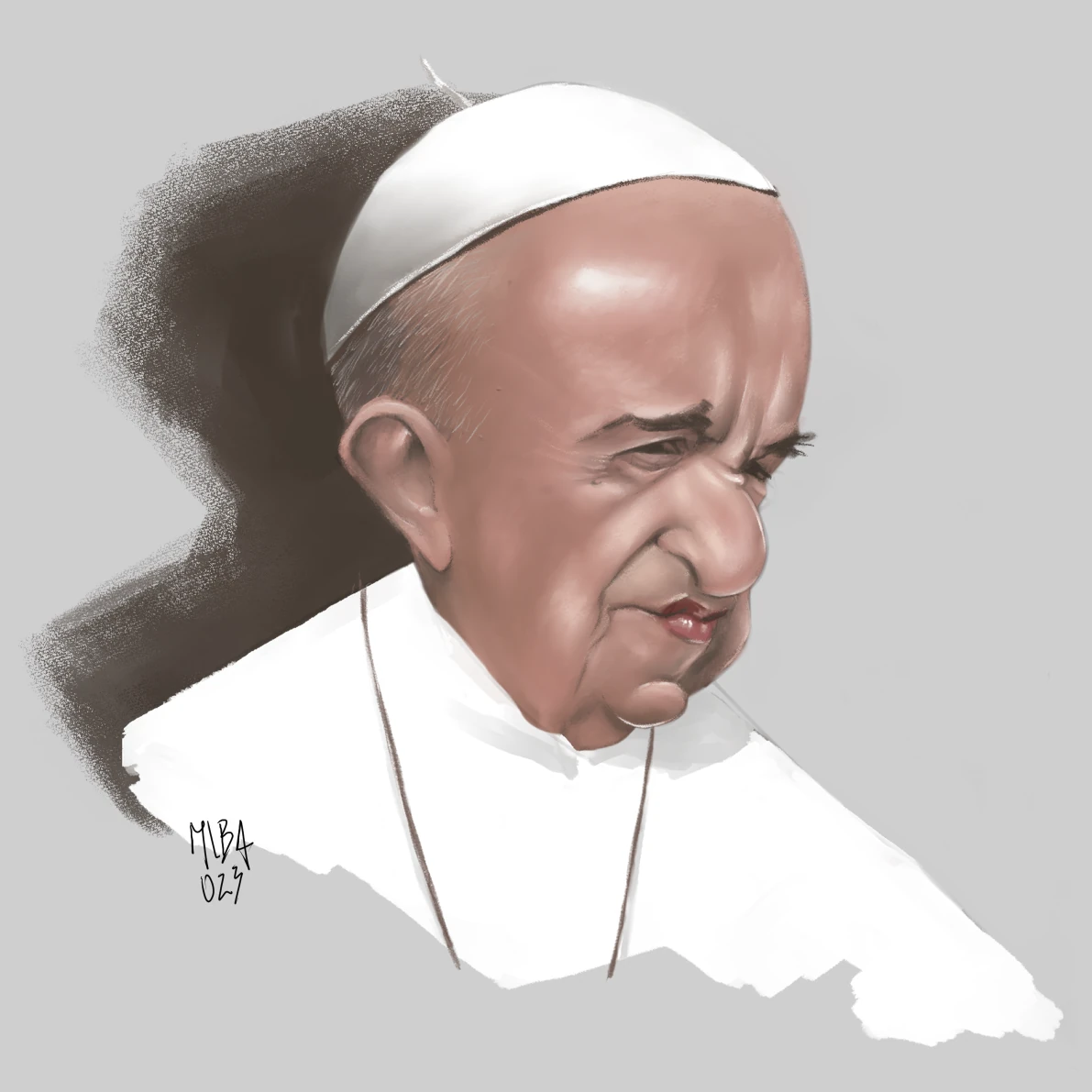
Francis
The Pope, born Jorge Mario Bergoglio on December 17, 1936, in Buenos Aires, Argentina, is a figure of profound significance in the modern Catholic Church and a globally recognized advocate for compassion, social justice, and interfaith dialogue. His papacy, which began on March 13, 2013, has been marked by a transformative leadership style that emphasizes humility, inclusivity, and engagement with contemporary challenges.
From the moment of his election as the 266th Pope of the Roman Catholic Church, Pope Francis signaled a departure from traditional norms. Choosing the name “Francis” in honor of Saint Francis of Assisi, a revered figure known for his simplicity, devotion to the poor, and care for the environment, Pope Francis underscored his commitment to addressing issues of social inequality, environmental degradation, and human dignity.
At the core of Pope Francis’ papacy is his unwavering dedication to social justice. He has consistently spoken out against the global scourge of poverty, emphasizing the moral imperative to care for the most vulnerable members of society. His words and actions reflect his genuine concern for those marginalized by economic disparities, advocating for a more equitable distribution of resources and opportunities. His visits to slums, refugee camps, and detention centers demonstrate his commitment to standing in solidarity with those often forgotten or neglected.
Pope Francis’ encyclical “Laudato Si’,” released in 2015, is a seminal document that addresses the urgent need for environmental stewardship and the ethical responsibility to safeguard the planet for future generations. In this groundbreaking encyclical, he links environmental issues with social justice, highlighting how climate change disproportionately affects the poor and vulnerable. His call for global cooperation to address ecological challenges resonates not only within the Catholic community but also with a broader audience concerned about the fate of our planet.
The Pope’s commitment to dialogue extends beyond his own faith. He has been an advocate for interfaith cooperation and understanding, engaging with leaders from various religious traditions to promote peace, harmony, and respect among diverse communities. His historic meetings with figures like Sheikh Ahmed El-Tayeb, the Grand Imam of Al-Azhar, exemplify his commitment to bridge-building between faiths and cultures in a world often divided by religious tensions.
Pope Francis’ leadership style is characterized by his emphasis on humility and simplicity. He is known for his unassuming demeanor, his personal interactions with people from all walks of life, and his willingness to challenge established norms. His decision to live in a modest guesthouse rather than the traditional papal apartments and his choice of a simpler car highlight his desire to lead by example and distance himself from symbols of opulence.
Nevertheless, Pope Francis’ papacy has not been without controversy. His more progressive stances on issues like divorce, LGBTQ+ rights, and reproductive health have sparked debates within the Catholic Church. While some view these shifts as necessary adaptations to a changing world, others argue that they challenge traditional teachings and create divisions.
Pope Francis’ response to the ongoing sexual abuse scandal within the Church has also drawn attention. He has shown commitment to addressing the issue, meeting with survivors and taking steps to ensure accountability among clergy members. However, some critics contend that more concrete action is needed to fully address the extent of the problem.
In terms of global diplomacy, Pope Francis has played a role in fostering dialogue and reconciliation in various geopolitical conflicts. His involvement in facilitating dialogue between the United States and Cuba, as well as his appeals for peace in war-torn regions, underscores his desire to contribute to global stability and harmony.
In conclusion, Pope Francis’ papacy is characterized by his dedication to compassion, social justice, and dialogue. His commitment to addressing issues of poverty, inequality, environmental degradation, and interfaith understanding has resonated not only within the Catholic Church but also on the global stage. His leadership style, marked by humility, inclusivity, and a willingness to challenge established norms, has left an indelible mark on the Church and broader society. While his progressive stances have sparked debates, his advocacy for the marginalized and his call for a more compassionate world continue to influence hearts and minds around the globe.
